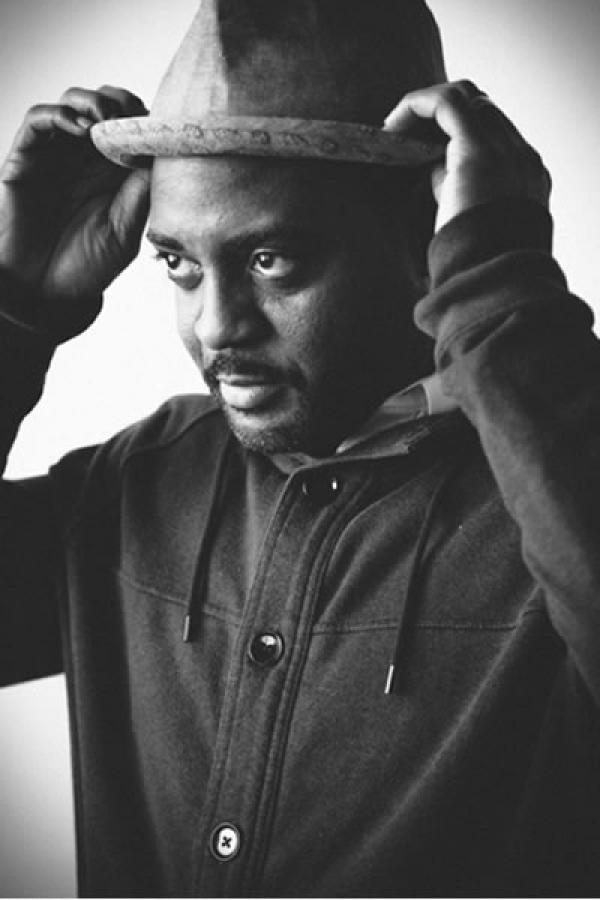Reginald Dwayne Betts

Photo by Rachel Eliza Griffiths
Bio
Reginald Dwayne Betts is a poet, memoirist, and lawyer. His writing grapples with the central role of incarceration to the American experience. His next collection of poetry, Felon, will be published in 2019 by Norton. His previous collection, Bastards of the Reagan Era (Four Way Books, 2015) received the 2016 PEN New England Award in Poetry. His first collection of poems, Shahid Reads His Own Palm, won the Beatrice Hawley Award. Betts’ memoir, A Question of Freedom: A Memoir of Learning, Survival, and Coming of Age in Prison, was the recipient of the 2010 NAACP Image Award for non-fiction. He is a 2018 Guggenheim Fellow and a 2018 Emerson Fellow at New America. He holds a BA from the University of Maryland; an MFA from Warren Wilson College; and, a JD from Yale Law School.
This year, nearly a decade after my memoir, A Question of Freedom, was published, the book has begun to make it into prison libraries in Virginia. I’d been reluctant to send it to friends inside, because it’s both my life and their lives and you fear you’ll get things wrong. Last night, a friend still doing time called me. We’d been incarcerated together twenty years ago. He was saying how I’d captured the moment, how I’d written our lives. The thing is, I’ve been writing since I was a teenager, and always hoped that people from my community, people I grew up with, people with similar experiences would hear me. And as I’ve gotten older, I’ve begun to embrace the notion that my community is more expansive than the block that I grew up on, includes the entire country. Or at least aspires to include the country. And so this award, coming a decade after my memoir was published, validates the notion that my work has been growing, speaking to audiences as diverse as the country. The collection of poems I’m working on now, in particular, grapples with issues that cut across the artificial lines we draw around ourselves. And I’m incredibly grateful to the National Endowment for the Arts for supporting my writing, it’s an affirmation that my writing can be both really intimate and personal while speaking to a larger world than the prison cells I’ve known.
"Triptych"
But for is always game.
A man can be murdered
twice, but for science,
his body a pool of blood
in Baltimore & Tulsa,
except, it isn't, his body actually
slender against the sunlight just
outside a California prison -- a crow
rests on a fence near his car.
Visiting hours long done,
(for man not crow,
one of a murderous many
that flies above this barbed wire)
& the cigarette he smokes
is illegal, here, & but for
the magnetic pull tragedy
has on black women he wouldn't be
here, right now, contemplating
the crimson colored man leaping
into the darkness on his Nikes.
He still says Air Jordans,
because air is important,
adjective swearing to black America's
aim, if not ability, to soar,
a way to outrun statistics
& the lead in the water.
Alas, metaphysics says
you are only you & no one
else, & a black poet says black
love is not one or one thousand
things, & it all may be true,
but for the fact that the man swears
the crow looks at him dead
as if he is already so,
as if while standing there he
has been murdered
by his brother, murdered
by a cop, & bodied
by a prison sentence as flames
from a Newport's burning ash
fail to illuminate his shadow.
Night
In the night, --night asleep, her eyes, woman,
my woman, I name her as if she is mine,
as if these hours that pass for the night belong to us;
my nights belong to the memories I can't shake; my night
& this woman, my woman she tells me how it wasn't
supposed to be like this. This insight another hail mary,
another haymaker. We live somewhere between almost there
& not enough. Almost there. Her dreams & all that she lost
for me is a kind of accounting. My woman, not my woman,
not this night, not these nights: the mine is less mine more
hurt. More hover than anything else. Shadowcloud.
Or as she says it, you stalked me until I submitted. Love
shapes itself to my hands wrapped round her throat. Have you
loved like that? I'll call your PO is the thing she says,
on this night with the men I robbed still lingering, a threat
to the freedom I imagined she gave when we became
cliche: naked, tangled. This is always about me.
how violence called to me like my woman moans when she
thought all this was the promise of more than a funeral.
When I grabbed her like that the first time, her legs held me
tight. My woman thinking the cells in my past can make
her control this: all the ways I starve. She threatens
to call my history back as a constraint on madness.
She stared at me, once, & said she saw her brothers
doing life in my eyes. In this night, when we talk to each other,
it is in shouts. The quilt of solitary cells I've known confess
that my woman has never been my woman. How ownership
& want made me split that bastard's head into a scream
is what I'll never admit to her. What she
tells me: prison killed you my love, killed you so dead
that you're not here now, you're never here, you're always.
Her eyes closed at night & I awaken and swear she
stares at me, she is saying that brown liquor owns me, saying
that the cells own me & that there is no room for her, unless
she calls the police, the state, calls upon her pistol, & sets me free.

